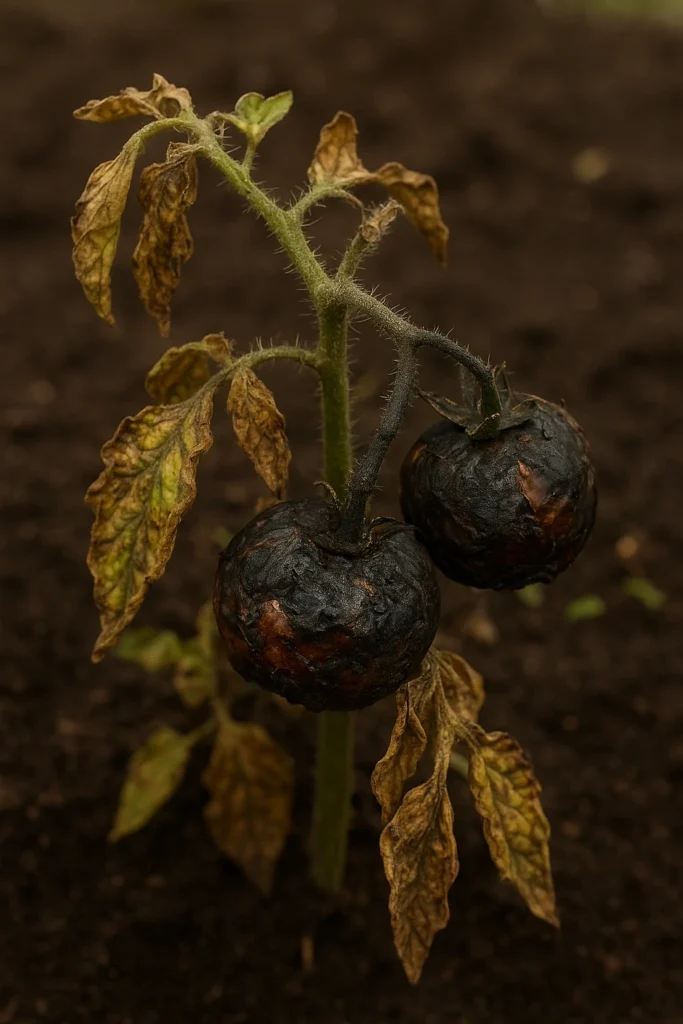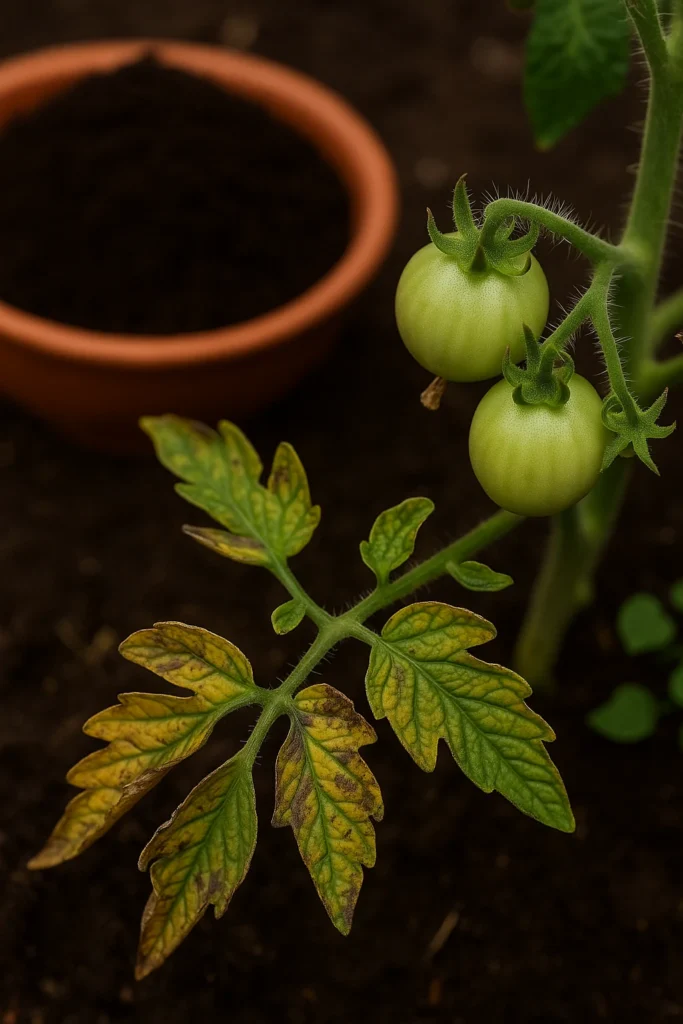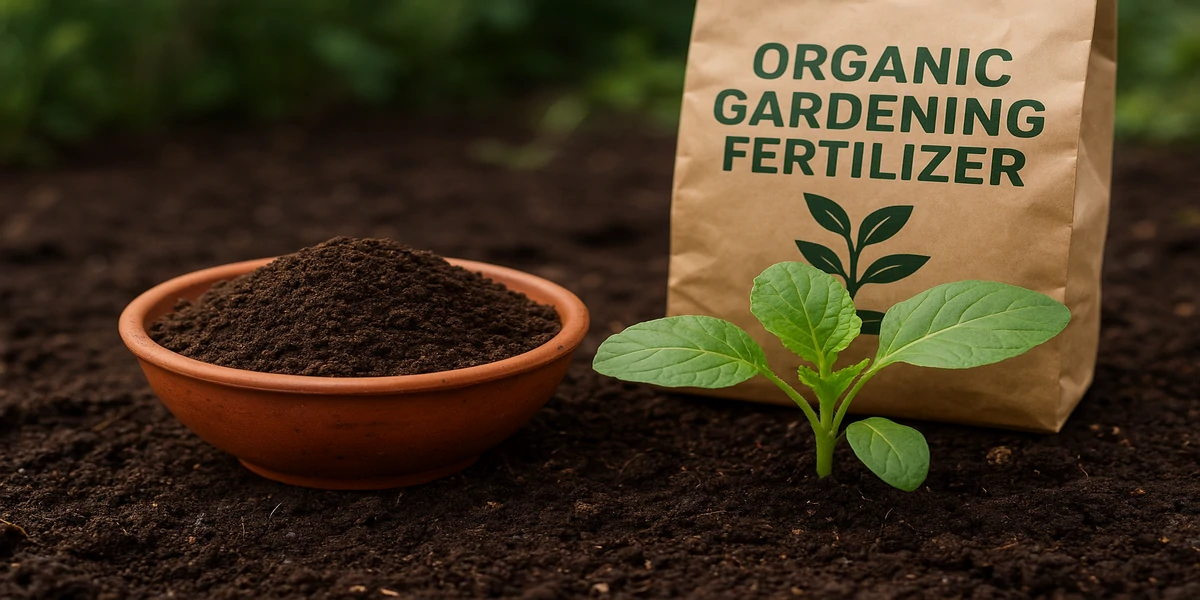When I first tried “going organic” in the garden, I thought all I had to do was throw banana peels in the dirt and call it a day. Turns out it ain’t that simple. I’ve been homesteading and gardening for over 10 years now, and lemme tell you I’ve had gardens that grew like jungles and others that looked like a sad salad bar after a church potluck. The big difference? Learning what kind of organic gardening fertilizer actually works for the plants, the soil, and honestly, for me too (I don’t wanna spend all summer broke and frustrated).
I’m no scientist, I’m just a guy who’s messed up enough times to know what not to do. So today I’m gonna share what I learned about organic fertilizers what worked, what flopped, and a few embarrassing mistakes I hope you can skip.
The First Time I Burned My Tomatoes
One summer, I read online that coffee grounds were magic for the garden. So I saved up a big ol’ bucket of them and dumped it all around my tomato plants in June. Looked good for about a week. Then the leaves started turning yellow, and the plants looked like they’d been punched in the face.
Turns out, too much coffee messes with the soil’s nitrogen balance, and I basically fried them. I still got a few tomatoes, but they were tiny and sour. Lesson learned: organic fertilizer doesn’t mean “dump it all in.” You gotta balance it.

So, What the Heck Is Organic Gardening Fertilizer?
It’s just stuff that feeds your plants naturally without the chemical pellets you buy at big box stores. Could be compost, animal manure, worm castings, seaweed, even homemade brews like compost tea.
The idea ain’t just feeding the plant. It’s about feeding the soil life worms, microbes, fungi. If the soil’s healthy, the plants usually take care of themselves. Took me years to really believe that, but now I see it play out every season.
My Top 3 Organic Fertilizers (That I Actually Use)
I’ve tried everything from fancy organic bags at the store to DIY stuff in buckets. Here’s what stuck around:
- Compost
- This is my #1. Kitchen scraps, yard waste, chicken poop, all cooked down into black gold. I don’t get it perfect, but even my half-baked compost piles make a huge difference.
- One spring I planted two rows of beans, one row with compost worked in, the other without. The compost row was double the size. My neighbor thought I was hiding Miracle-Gro in the shed.
- Chicken Manure (aged)
- If you keep chickens, don’t waste that poop. Just don’t use it fresh unless you like killing plants. I made that mistake in year 3 spread fresh litter on the garden and everything shriveled. Now I let it age 6 and 12 months, then mix it in. Works wonders on corn and squash.
- Worm Castings
- I was skeptical, but worm poop is magic. My buddy gave me a handful from his worm bin, I sprinkled it around my pepper plants, and those peppers grew like they had something to prove. Now I keep a small worm bin in the basement year-round.
Fertilizers That Didn’t Work (For Me Anyway)
Not every “organic hack” online is worth your time. I’ve tried a few that flopped:
- Epsom salt People swear it helps tomatoes. I dumped some around mine, and all I got was salty soil and sad plants.
- Fish heads buried in the soil Smelled so bad the neighbor’s dog dug up my garden bed. Won’t do that again.
- Store-bought “organic spray” Maybe they work for some, but I paid $15 for a little bottle that lasted about two sprays. My cucumbers didn’t care one bit.
The Lazy Man’s Fertilizer: Mulch
One year I was behind on compost, and honestly just tired. I raked up a bunch of old leaves, spread them thick around my garden beds, and forgot about it. By fall, the leaves broke down into the soil, and my beds were richer without me lifting a finger.
So yeah, mulch counts as fertilizer in a slow, natural way. Wood chips, straw, leaves it all feeds the soil over time. Plus it keeps weeds down and saves water. Win-win.
When I Discovered Compost Tea
This one sounds fancy, but it’s just soaking compost in water to make a liquid fertilizer. The first time I tried it, I left a 5 gallon bucket of compost and water in the sun for two weeks. I didn’t stir it or anything. When I opened it, the smell nearly knocked me down. My wife banned it from the yard.
Now I do it better soak compost for 2 or 3 days, stir it, then pour it around plants. Tomatoes especially love it. Just don’t forget and leave it fermenting too long. Trust me, your nose will regret it.
Fertilizer for Small Spaces (Urban Homesteading Days)
Back when I lived in the city, I didn’t have chickens or a compost pile. I grew peppers and basil in pots on my balcony. What saved me then was worm castings and small bags of organic fertilizer like bone meal.
I remember sneaking bags of soil up three flights of stairs like some kind of dirt dealer. My basil plants grew like crazy though, and I learned you don’t need acres to make organic fertilizer work. Even a balcony garden can thrive with the right stuff.
Mistakes I Still Make
I’ve been at this a while, but I still mess up:
- Overfeeding – Too much organic fertilizer still burns plants. More ain’t better.
- Wrong timing – I used to dump manure in spring planting time. Plants hated it. Now I add it in fall, so it breaks down over winter.
- Ignoring pH – Soil can get too acidic with certain fertilizers (like too much manure). I learned to test the soil every couple years. Cheap $10 kit saves a lot of heartbreak.
Quick Fertilizer Recipes I Actually Use
I’m not into complicated formulas, but here’s what I do:
- Banana Peel Tea – Throw banana peels in a jar of water for a week. Pour it around tomatoes and peppers. Works decent.
- Eggshell Powder – Crush ‘em up, sprinkle around tomatoes. Adds calcium, helps prevent blossom end rot (learned this after losing half a crop once).
- Weed Tea – Fill a bucket with weeds and water, let it sit 1 or 2 weeks, stir, then pour around plants. Smelly, but free nitrogen boost.
My Best Tip: Listen to the Plants
Sounds cheesy, but plants tell you what they need. Yellow leaves? Probably nitrogen. Purple leaves? Phosphorus. Slow growth? Could be soil’s just tired.
I used to chase internet hacks, now I just watch my garden. If I see something off, I add compost or a natural boost. 9 times out of 10, that fixes it.

Mini FAQ
Q: Can I really make fertilizer at home?
A: Heck yes. Compost, banana peels, eggshells, even weeds. Don’t overthink it.
Q: Do I need animals for good fertilizer?
A: Nope. Chickens and rabbits help, but kitchen scraps and leaves can build great soil too.
Q: Is store-bought organic fertilizer worth it?
A: Sometimes. If you’re in the city with no compost, a bag of organic fertilizer can get you started. But long term, making your own saves money.
Wrapping This Up (Kinda)
I’m not here to tell you one “magic” organic gardening fertilizer. The truth is, it’s a mix, and it depends on your soil and your plants. Some years I lean heavy on compost, other years I rely on mulch or worm castings.
The main thing? Don’t get discouraged. I’ve burned plants, killed gardens, and wasted money, but every mistake taught me something. Now I walk out back, see my kids picking tomatoes right off the vine, and think yep, worth all the screwups.
So start small. Make a compost pile, try a worm bin, throw banana peels in the soil. Watch what happens. You’ll figure out your own best mix of organic fertilizers. And when you do, you’ll never go back to the blue chemical stuff again.
Got a weird question about your garden soil? Drop it below. I actually answer. And if you screw up like I did, don’t sweat it plants are forgiving, and you’ll get another shot next season.

